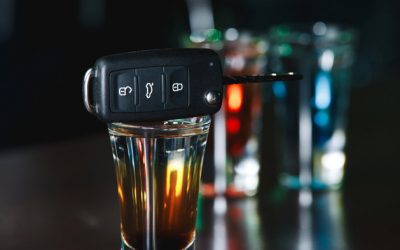
In legal terms, an open container means any receptacle designed to hold alcohol or cannabis products that has been opened or partially (or entirely) consumed. The term open container also refers to receptacles for alcohol that have a broken seal.
California uses open container laws to prosecute individuals accused of improperly transporting alcohol or cannabis products. You can learn more about these charges and potential defenses with a Los Angeles DUI lawyer.
What Does the Term “Open Container” Mean?
California defines an open container as any receptacle that contains either alcohol or a cannabis product that:
- Is open OR
- Has a broken seal OR
- Someone partially consumed
Generally, individuals will only face charges under CA Vehicle Code 23222(a) – Open Containers for having containers open in motor vehicles.
Examples of Open Containers
Under California law, an individual may get a VC 23222(a) violation for possessing:
- Wine bottles with the seal removed (even if the cork is still in place or has been replaced)
- Any open glass, cup, or bottle that contains an alcoholic beverage
- Any case that contains cannabis products with the seal removed
Alcohol or marijuana doesn’t have to be present in the receptacle for the police to accuse you of a violation of the open container law. Having empty beer bottles or edible containers in your motor vehicle can result in your arrest and may also trigger an investigation into a possible DUI.
What Qualifies as a Vehicle?
Any vehicle you can legally operate on the road may qualify as a “motor vehicle” under VC 23222. For example, you could get a ticket for having a container in the passenger area of a car, truck, motor home, or van.
What’s California’s Open Container Law?
California Vehicle Code 23222 codifies the specifics of what constitutes an open container violation within the state. It defines what constitutes a relevant container, where the police must discover the vehicle with the container, and how you can transport alcohol or marijuana.
A lawyer can tell you more about this law and what an open container means.
Can You Legally Transport Alcohol and Marijuana?
VC 23222 allows individuals to transport open containers of alcohol and marijuana in any location in the vehicle that the driver is unable to readily access. Typically, this means the trunk of the vehicle.
For example, you may legally transport open alcoholic beverages in the trunk of your vehicle in most cases. On the other hand, you could get a ticket for transporting alcoholic beverages in the passenger area of the car, or even in the glove compartment.
Closed containers, meaning those with the seals and contents still intact, may be transported normally. Individuals possessing a marijuana product who have a medical need may have the open container law waived if they:
- Kept the seal on the product, resealed it, or closed the receptacle
- Provide the peace officer with a doctor’s recommendation or a current ID card
If all of the above factors hold true at the time of the stop, you should not get a ticket.
Location of the Vehicle
Any motorist driving a vehicle found on public highways, roads, or lands with an open alcoholic beverage or container of marijuana as defined above can face a VC 23222 charge. However, if the vehicle is on private land, this law does not apply. So, if the vehicle with the container is on private land, you may not be charged with a violation.
Exceptions for Vehicles for Hire
Generally, you can possess an open marijuana product or container of alcohol while riding as a passenger in a vehicle for hire. These vehicles may include:
- Limousines
- Taxis
- Ride-sharing vehicles
Our state’s open container laws allow you to possess open containers in these situations, even on a public highway and even in the passenger compartment.
Penalties for Violating the Open Container Law
Open container charges do not rise to the level of a misdemeanor. Like a speeding ticket, it is considered an “infraction” under state law. The only penalty for violating the law is a fine, which may not exceed $250.
Underage Exceptions
In California, individuals under the age of 21 are not allowed to possess alcohol on their own. When someone who is under 21 is alone and found with any alcohol in their vehicle, they are guilty of a criminal misdemeanor.
Under these circumstances, the container doesn’t have to be open for it to be a crime. Like with other adults, an alcohol container may still trigger an investigation into a possible DUI.
A conviction for a misdemeanor can result in multiple more serious penalties, including:
- Fines
- Jail time
- Orders to complete community service
- Restrictions on your driver’s license
Fortunately, a criminal defense lawyer can help you handle these charges immediately and tell you more about minors and an open container of alcohol in the vehicle.
We Can Tell You More About VC 23222 Charges
So, what does an open container mean? This term can refer to any currently or previously opened container of alcohol or marijuana. A ticket can result in fines, and if an officer notices a container of alcohol in a motor vehicle, they may see it as probable cause to arrest you for a DUI.
Unlike VC 23222 violations, a DUI is a criminal misdemeanor for everyone and can result in thousands of dollars in fines and possible jail time. If you face charges for a VC 23222 infraction or a DUI, your best course of action may be to retain an experienced DUI lawyer.
A lawyer can handle both of these charges. Fortunately, our team can put you in touch with a skilled DUI lawyer who can help you with your legal situation. Reach out now so we can help you get the legal support you deserve.








